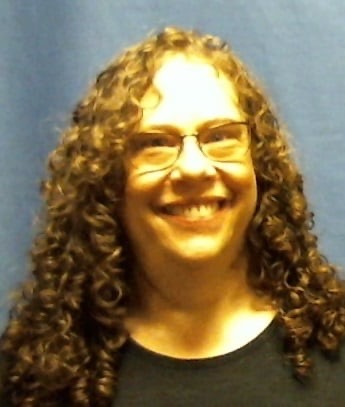By Jane E. Herman
“I call heaven and earth to witness against you this day: I have put before you life and death, blessing and curse. Choose life—if you and your offspring would live—” (Deuteronomy 30:19)
Just before Rosh Hashanah, I wrote in this d’var Torah on Nitzavim–Vayeilech that we are a life-affirming people. It was a personal statement as much as a communal one. Nearly a decade earlier, I had an opportunity—literally—to act upon the imperative in that Torah portion to “choose life.”
In August 2010, a genetic test revealed that I carry an inherited BRCA (derived from the words BReast CAncer) mutation that significantly increases my lifetime risk of breast, ovarian, pancreatic, and several other types of cancer.
Choose life?!
Ha!
I was running for mine. In between, I was running to endless screenings and medical appointments, researching risk management options, and, oh, yes, grieving the loss of my mom who’d died only a few months earlier, somewhat suddenly after a brief but intense illness. Aggressive breast cancer that ravaged her body—caused by the same mutation I now knew coursed through my DNA—took her life. Unlike me, though, my mom never knew she carried a defective gene.
Given my age at the time and the difficulty of detecting ovarian cancer early, when a cure may be possible, I quickly chose life, opting for preventive surgery to reduce my risk significantly. I made the same decision to manage my increased risk of breast cancer with a second, complex preventive surgery seven months later, but only after a blip on an MRI convinced me I didn’t have the personal risk tolerance for a lifetime of surveillance. In a third surgery, nearly a year later, the plastic surgeon put some finishing touches on his handiwork. More recently, I enrolled in a clinical trial that uses somewhat invasive screenings to detect precancerous lesions and early stage pancreatic cancer among high-risk individuals.
By now, you’re probably wondering why I’m telling you this intensely personal story in such detail—and in this public forum.
Of course, October is breast cancer awareness month, but I’m sharing my story now because BRCA mutations are 10 times more prevalent among Ashkenazi Jews (those originally from central and eastern Europe) than they are in the general population. Although they’re considered rare, one in 40 individuals of Ashkenazi descent—women and men—carries a BRCA mutation that was inherited from either their mother or their father and can be passed on to both daughters and sons. Most people who carry such a mutation have no idea it’s hiding out in their family tree. In the general population, approximately one in 400 individuals carries a defective BRCA gene. There also is a growing list of hereditary cancer-causing genetic mutations, including in these genes: : ATM, BRIP1, CHEK2, and PALB2, as well as multiple genetic mutations that can cause Lynch syndrome.
Raising awareness about BRCA and other genetic mutations, especially in North America’s Jewish community, where most Jews are of Ashkenazi descent, has become my “soapbox issue.” I tell and retell my family’s story in the hope that it might spare even one other family from the heartache that comes from not knowing—enabling them, too, to choose life. Giving others tools to recognize the possibility of a lurking mutation and the knowledge necessary to uncover it pays tribute to my mother’s life and honors her memory.
According to the National Cancer Institute, these signs and patterns may suggest a BRCA mutation’s presence within a family:
- A breast cancer diagnosed before age 50
- Cancer in both breasts in the same woman
- Both breast and ovarian cancers in either the same woman or the same family
- Multiple breast cancers in the family
- Two or more primary types of BRCA1- or BRCA2-related cancers in a single family member
- Cases of male breast cancer
- Ashkenazi Jewish ethnicity
If you believe there may be such a mutation in your family, the best first step is to consult with a certified genetic counselor who is specially trained to assess family history and personal risk, recommend and order genetic tests as appropriate, interpret the results, and, if a mutation is present, guide individuals in developing plans to manage their risk.
I already knew I carried a BRCA mutation when I had preventive surgeries to choose life, but knowing your family’s medical history, sharing it with members of your extended family, and consulting with a genetic counselor if you suspect the presence of a cancer-causing mutation are other ways to choose life as Jewish tradition encourages us to do.
To find a genetic counselor near you, visit the website of the National Society of Genetic Counselors and its Find a Genetic Counselor page. For more information about BRCA genetic mutations and other inherited cancer-causing genetic mutations, visit the website of Sharsheret, one of JCC Association’s community partners, dedicated to bringing resources to JCCs, as well as to their staff and members. FORCE: Facing Our Risk of Cancer Empowered also offers information, resources, and support to individuals and families affected in any way by hereditary cancer syndrome.
 Jane E. Herman is the senior writer at JCC Association of North America. Email her at [email protected].
Jane E. Herman is the senior writer at JCC Association of North America. Email her at [email protected].
Stay connected to the JCC Movement! Sign up below for email updates, including our new quarterly newsletter, and visit us on Facebook, Instagram, and Twitter.
Reader Interactions